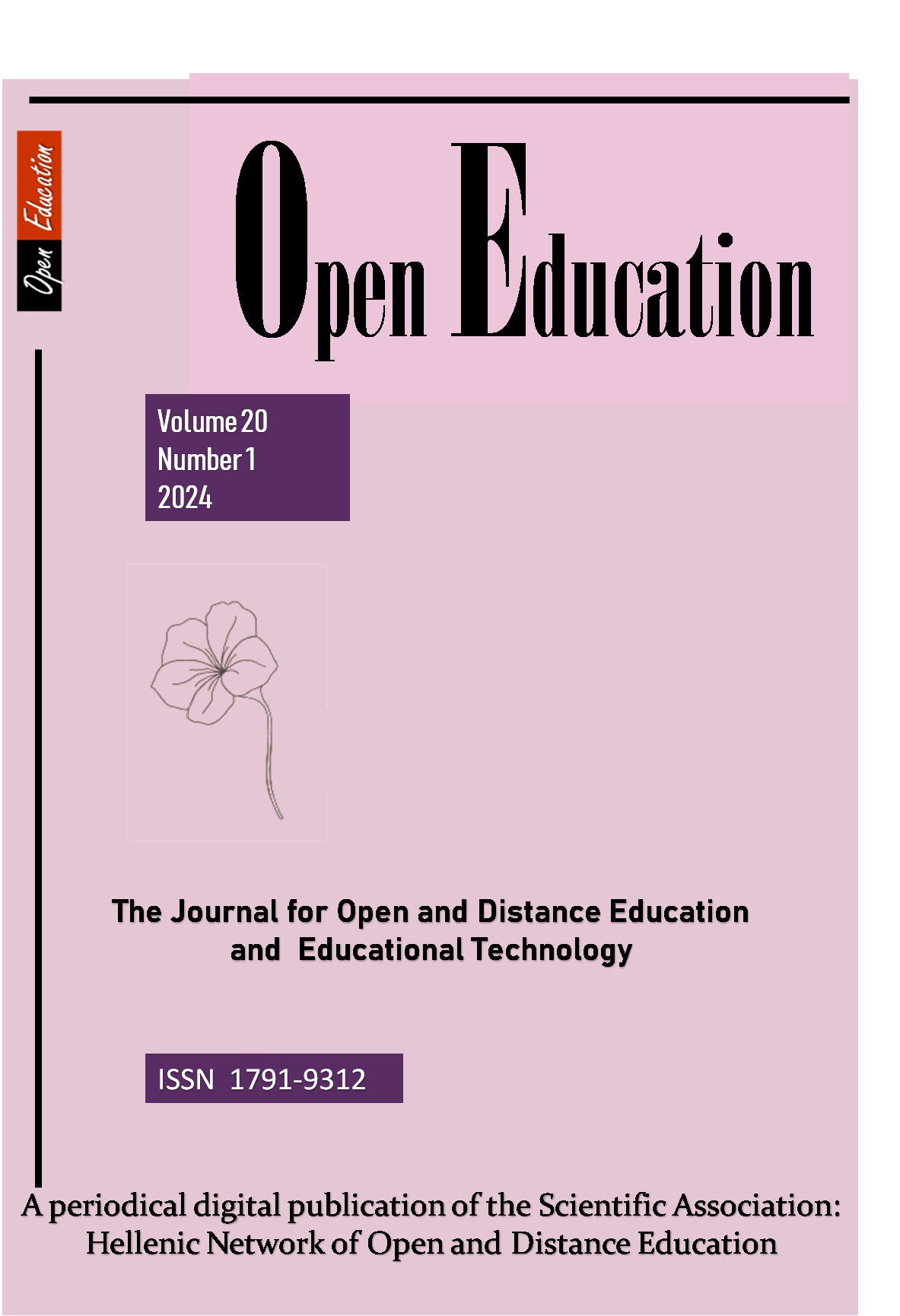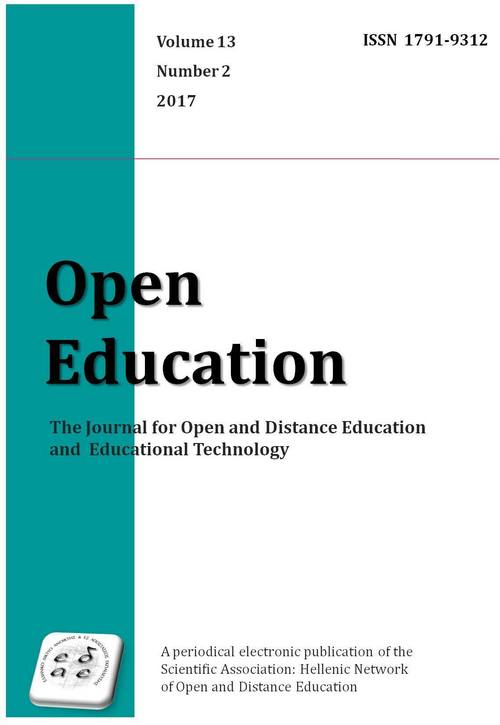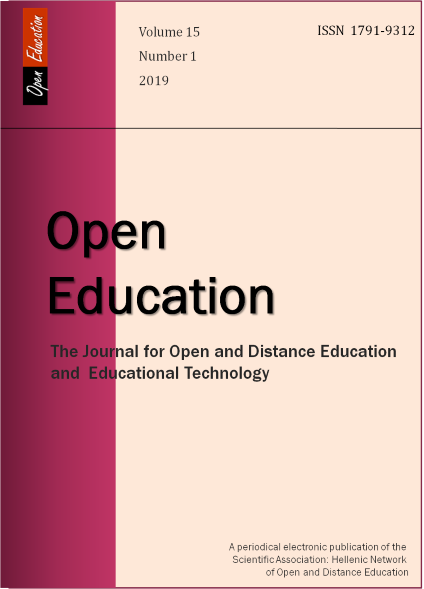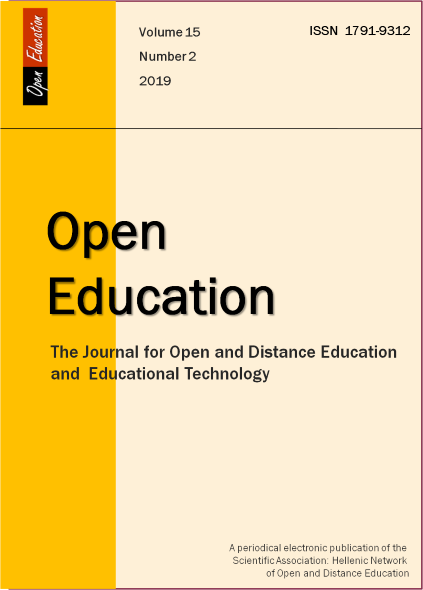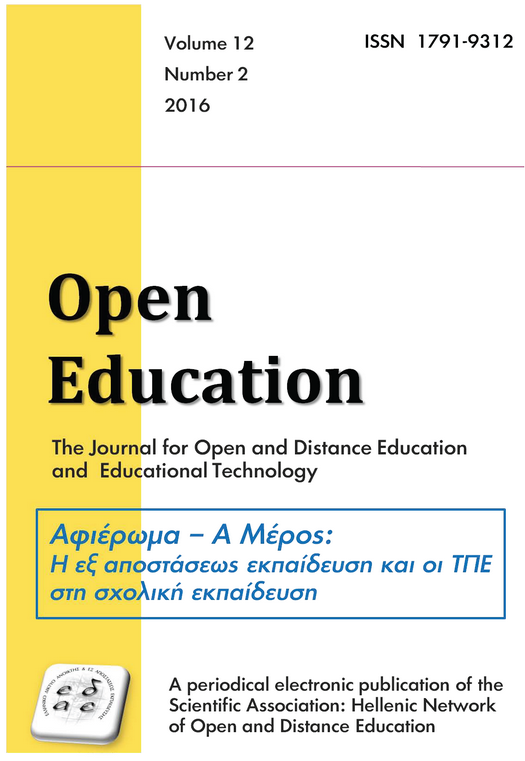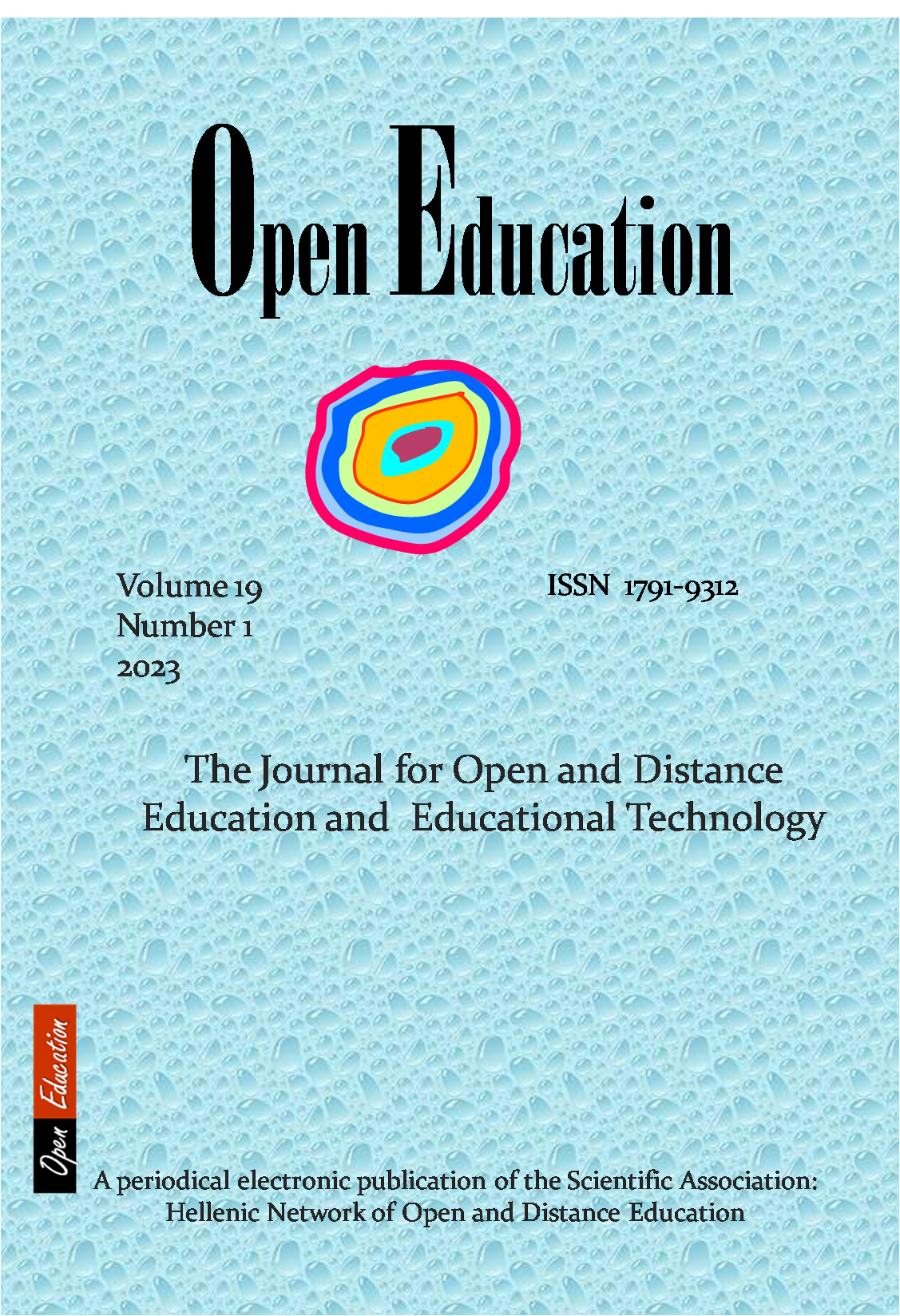Διερεύνηση των αντιλήψεων των εκπαιδευτικών για την κινητή μάθηση και των παραγόντων που τις επηρεάζουν
Abstract
Στις μέρες μας, η καθημερινότητα των παραγωγικών μελών των σύγχρονων κοινωνιών είναι δομημένη γύρω από τις έξυπνες φορητές συσκευές και τις εφαρμογές τους, οι οποίες εξυπηρετούν κοινωφελείς υπηρεσίες και αγαθά, όπως η υγεία και η εκπαίδευση. Όσον αφορά στην εκπαίδευση, τα τελευταία χρόνια παρατηρούμε την εκπαιδευτική, ερευνητική και ακαδημαϊκή κοινότητα να εξετάζει επισταμένως μεθόδους αξιοποίησης και ενσωμάτωσης των έξυπνων φορητών συσκευών στην εκπαιδευτική διαδικασία, στοχεύοντας στην αναβάθμιση της μαθησιακής εμπειρίας. Το παρόν άρθρο παρουσιάζει σχετική έρευνα μικρής κλίμακας, στην οποία υιοθετήθηκαν οι αρχές της ποσοτικής μεθοδολογίας για τη συλλογή δεδομένων. Η έρευνα διεξήχθη στο Ηράκλειο της Κρήτης το εαρινό εξάμηνο του σχολικού έτους 2021-2022, με συμμετέχοντες και 127 εκπαιδευτικούς Δευτεροβάθμιας Εκπαίδευσης. Ως ερευνητικός στόχος τέθηκε η διερεύνηση των αντιλήψεων των εκπαιδευτικών Γυμνασίων και Λυκείων σχετικά με την ενσωμάτωση της κινητής μάθησης στο εκπαιδευτικό γίγνεσθαι. Επιπλέον, εξετάστηκαν το φύλο, η ηλικία, η διδακτική εμπειρία και η ειδικότητα των εκπαιδευτικών ως πιθανοί παράγοντες διαμόρφωσης των αντιλήψεών τους. Η στατιστική ανάλυση των ερευνητικών δεδομένων ανέδειξε ότι οι εκπαιδευτικοί αναγνωρίζουν τα οφέλη που απορρέουν από την αξιοποίηση της κινητής τεχνολογίας στη σχολική τάξη. Επιπλέον, διαφάνηκε ότι οι αντιλήψεις των εκπαιδευτικών για την κινητή μάθηση δεν επηρεάζονται από το φύλο, την ηλικία, τη διδακτική εμπειρία και την ειδικότητά τους. Αυτά τα αποτελέσματα μπορούν να αποτελέσουν τη βάση μελλοντικών μελετών που θα επικεντρώνονται στην αξιοποίηση των έξυπνων φορητών συσκευών στη Δευτεροβάθμια Εκπαίδευση, στα πλαίσια της τυπικής μάθησης.
Article Details
- Come citare
-
- Sezione
- Άρθρα

Questo lavoro è fornito con la licenza Creative Commons Attribuzione - Non commerciale - Condividi allo stesso modo 4.0 Internazionale.
Οι συγγραφείς των άρθρων που δημοσιεύονται στο περιοδικό διατηρούν τα δικαιώματα πνευματικής ιδιοκτησίας επί των άρθρων τους, δίνοντας στο περιοδικό το δικαίωμα της πρώτης δημοσίευσης. Άρθρα που δημοσιεύονται στο περιοδικό διατίθενται με άδεια Creative Commons 4.0 και σύμφωνα με την άδεια μπορούν να χρησιμοποιούνται ελεύθερα, με αναφορά στο/στη συγγραφέα και στην πρώτη δημοσίευση για μη κερδοσκοπικούς σκοπούς και με δικαίωμα τροποποίησης μόνον με παρόμοια διανομή (αν αναμείξετε, τροποποιήσετε, ή δημιουργήσετε πάνω στο υλικό, πρέπει να διανείμετε τις δικές σας συνεισφορές υπό την ίδια άδεια όπως και το πρωτότυπο).
